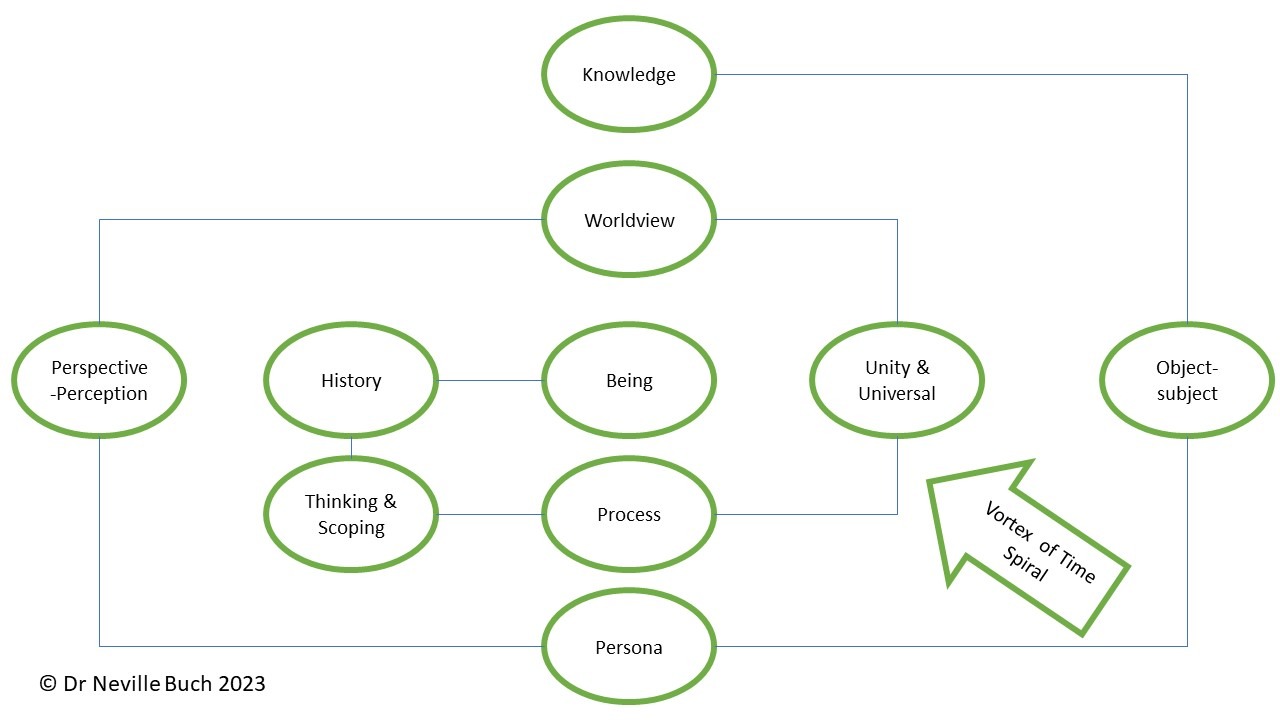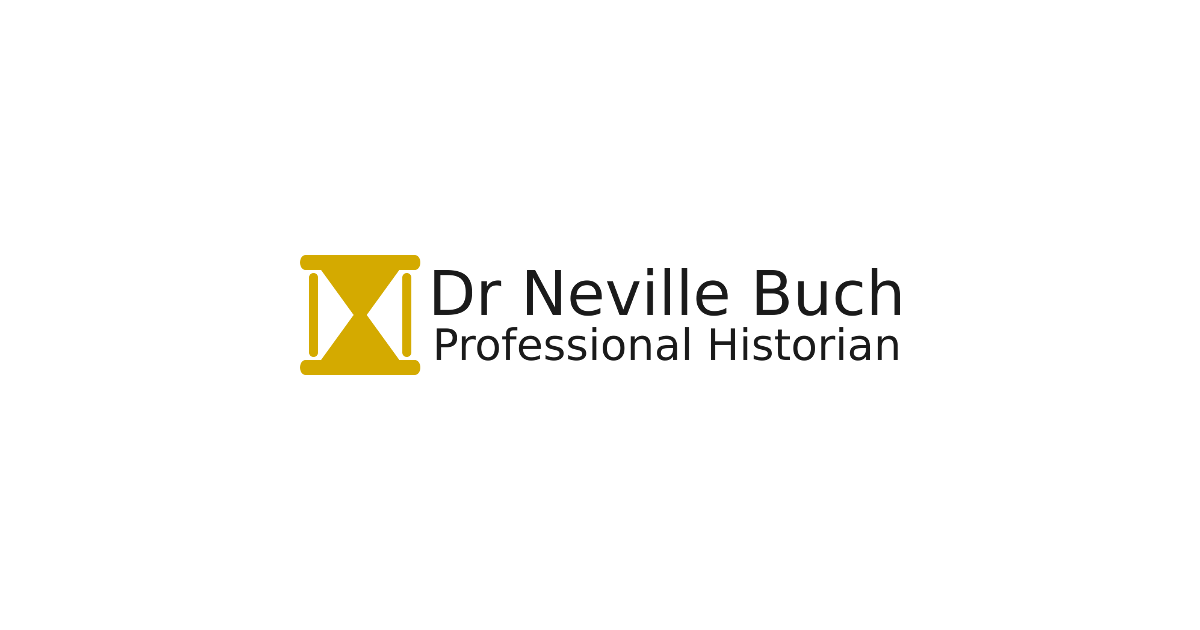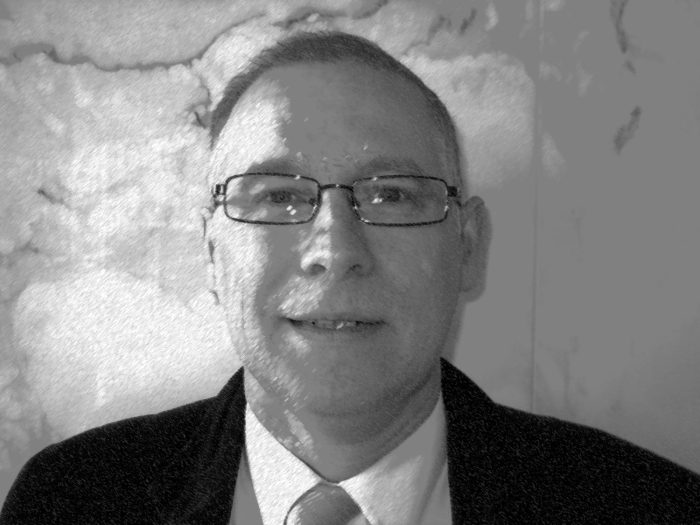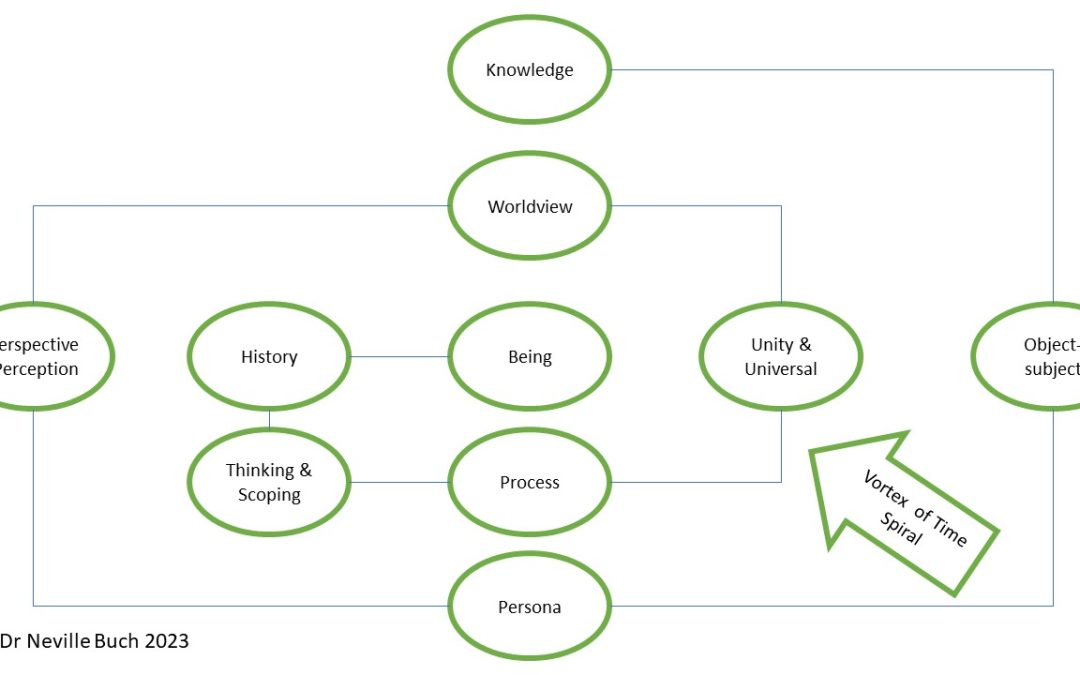
by Neville Buch | May 22, 2024 | Concepts in Educationalist Thought Series, Important Public Statement, Intellectual History
Dear friends,
Tyler Austin Harper (2024). The Big Ai Risk Not Enough People Are Seeing: Beware technology that makes us less human, The Atlantic, MAY 21, 2024, 6 AM ET.
In 1977, Ivan Illich, an Austrian-born philosopher, vagabond priest, and ruthless critic of metastatic bureaucracies, declared that we had entered “the age of Disabling Professions.” Modernity was characterized, in Illich’s view, by the standardization and professionalization of everyday life. Activities that were once understood to be within the competencies of laypeople—say, raising children or bandaging the wounded—were suddenly brought under the purview of technical experts who claimed to possess “secret knowledge,” bestowed by training and elite education, that was beyond the ken of the untutored masses. The licensed physician displaced the local healer. Child psychologists and their “cutting edge” research superseded parents and their instincts. Data-grubbing nutritionists replaced the culinary wisdom of grandmothers.
Illich’s singular insight was that the march of professional reason—the transformation of Western civilization into a technocratic enterprise ruled by what we now call “best practices”—promised to empower us but actually made us incompetent, dependent on certified experts to make decisions that were once the jurisdiction of the common man. “In any area where a human need can be imagined,” Illich wrote, “these new professions, dominant, authoritative, monopolistic, legalized—and, at the same time, debilitating and effectively disabling the individual—have become exclusive experts of the public good.” Modern professions inculcate the belief not only that their credentialed representatives can solve your problems for you, but also that you are incapable of solving said problems for yourself. In the case of some industries, like medicine, this is plainly a positive development. Other examples, like the ballooning wellness industry, are far more dubious.
If the entrenchment of specialists in science, schooling, child-rearing, and so on is among the pivotal developments of the 20th century, the rise of online dating is among the most significant of the 21st. But one key difference between this more recent advancement and those of yesteryear is that websites such as Tinder and Hinge are defined not by disabling professionals with fancy degrees, but by disabling algorithms. The white-coated expert has been replaced by digital services that cut out the human middleman and replace him with an (allegedly) even smarter machine, one that promises to know you better than you know yourself.
…
Both Western intellectuals and the progressive public tend to be hostile to the idea that there is a universal “human nature,” a phrase that now has right-wing echoes. Instead, those on the left prefer to emphasize the diversity, and equality, of varying human cultural traditions. But this discomfort with adopting a strong definition of human nature compromises our ability to draw red lines in a world where AI encroaches on human territory. If human nature doesn’t exist, and if there is no core set of fundamental human activities, desires, or traits, on what basis can we argue against the outsourcing of those once-human endeavors to machines? We can’t take a stand against the infiltration of algorithms into the human estate if we don’t have a well-developed sense of which activities make humans human, and which activities—like sweeping the floor or detecting pancreatic cancer—can be outsourced to nonhuman surrogates without diminishing our agency.
One potential way out of this impasse is offered by the so-called capability approach to human flourishing developed by the philosopher Martha Nussbaum and others. In rejection of the kind of knee-jerk cultural relativism that often prevails in progressive political thought, Nussbaum’s work insists that advocating for the poor or marginalized, at home or abroad, requires us to agree on universal “basic human capabilities” that citizens should be able to develop. Nussbaum includes among these basic capabilities “being able to imagine, to think, and to reason” and “to engage in various forms of familial and social interaction.” A good society, according to the capability approach, is one in which human beings are not just theoretically free to engage in these basic human endeavors, but are actually capable of doing so.
All that being the case, the question is why I have not been offered employment, or even a short contract, from the Queensland Government and the Brisbane City Council.
The point is that everything that was said by Tyler Austin Harper, in
The Atlantic piece, for the last decade, I have been saying in my largely unpaid work for Queensland society and Brisbane residents. The evidence is
here, https://drnevillebuch.com/news/
Because there are ‘dickhead thinkers’, in power, who immediately dismiss a general reference, allow me to be more precise:
Featured Image: Dr Neville Buch’s Methodological Model.

by Neville Buch | Jul 5, 2019 | Marketing
- Introducing History Service – Personal & Family History
Dr Buch offers a consultancy referral service for those interested in personal or family histories. This is the only area of the professional work where the paid work is restricted to the consultancy guidance offered. Research in your own personal or family history is your work. I have my own.
For more information, please go to [click]
ANNOUNCING…
Continuing work on ‘The History of Ruth’. And…
Stephens at War Conference, at the Yeronga-Stephens RSL on 26 October.
I will presenting a paper on ‘Local History Beyond Appearance – To the hearts and minds of those who lived through World War I in the Stephens Shire.’
For more information, please go to [click]
THE MARKETING DEAL OF THE CENTURY!
This month only! If you ask for a service in Personal & Family History, you will get 10% off the marketplace professional rate!
THE SCHOLARSHIP
The above announcement is a piece of satire. Like all satire, there is a grain of truth. People sometimes do not get satire, so I will explain. Public history was once supported by public institutions. Under the narrative of neo-liberal economies, public history is now expected to be supported by the market. The problem, as explained by the best and honest economists, is that there are some areas of society that are not meant to be placed on the market, those areas that can never be ‘efficient’ (in reality) through competition policy. Researched education, learning and scholarship, is one of those areas.
Since neo-liberal politicians have won the day, those of us who are professional humanities and social science workers have been forced into a choice, with the exception in the paper-thin token number of colleagues, luck enough to have one of the very few positions still open at universities, or other public institutions. We are forced to choose to abandon our careers in professional research, even as we have proved ourselves in higher degrees and quality publications, OR we place our services to the marketplace, until the day returns when we are sufficiently employed back in the public sphere.
The grain of truth in the above satire piece is that I will provide a history service for a price, negotiable around the Professional Historians Australia fee scale. The other business option is lobbying for the return of public funding levels to public institutions for the sufficient employment of professional researchers.
Image: ID 89655097 © Encho Enevski | Dreamstime.com

by Neville Buch | Jan 30, 2019 | What Time Is It?
Anniversaries and commemorations come and go daily. Most of us, even the best historians, miss most occasions. If we think of history as events then we are faced with a continually showering in the grains of sand. Nevertheless, we do pick out certain patterns in the remembrance of historical dates. The blog here reminds us of some dates where the local, state, national, and global perspectives entwine.
On 30, Saturday January 1869, Frances Catherine Barnard, English author, died (b. 1796)
On 30, Saturday January 1869, William Carleton, Irish novelist, died (b. 1794)
On 30, Tuesday January 1894, King Boris III of Bulgaria, born (d. 1943)
On 30, Tuesday January 1894, René Dorme, French World War I fighter ace, born (d. 1917)
On 30, Thursday January 1919, John C. Elliott, American politician and 39th Governor of American Samoa (1952), born (d. 2001)
On 30, Sunday January 1944, WWII: The Battle of Cisterna opens as United States Army Rangers attempt to break out of the Anzio beachhead.
On 30, Sunday January 1944, United States troops invade Majuro, Marshall Islands.
On 30, Friday January 1959, Danish passenger/cargo ship MS Hans Hedtoft, returning to Copenhagen after its maiden voyage to Greenland, strikes an iceberg and sinks off the Greenland coast with the loss of all 95 on board.
On 30, Friday January 1959, Jody Watley, African-American singer, born
On 30, Thursday January 1969, The Beatles give their last public performance, of several tracks on the roof of Apple Records, London (featured in Let It Be (1970 film)).
On 30, Tuesday January 1979, Charles Watts, English cricketer, died (b. 1894)
On 30, Monday January 1989, Prime Minister of Canada Brian Mulroney shuffles his cabinet, appointing six new ministers and reassigning the responsibilities of nineteen others.
On 30, Monday January 1989, Jahvid Best, American NFL player, born
On 30, Monday January 1989, Lee Gun-woo, South Korean singer, born
On 30, Monday January 1989, Khleo Thomas, American actor and rapper, born
On 30, Monday January 1989, Alfonso, Duke of Anjou and Cádiz, died (b. 1936)
On 30, Sunday January 1994, Pierre Boulle, French author, died (b. 1912)
On 30, Sunday January 1994, Rudolf Schwarz, Austrian-born British conductor, died (b. 1902)
On 30, Sunday January 1994, Bahjat Talhouni, Jordanian politician, died (b. 1913)
On 30, Friday January 2009, Ingemar Johansson, Swedish boxer, died (b. 1932)
On 30, Thursday January 2014, Tropical Cyclone Dylan dumps heavy rain on north and central Queensland.
On 30, Thursday January 2014, The Federal Government rejects a $25 million assistance request from SPC Ardmona, a fruit processing company which sought help from the Victorian and Federal governments to restructure its operations, arguing the high Australian dollar and cheap imports had made it hard to compete. Prime Minister Tony Abbott says SPC Ardmona’s parent company, Coca-Cola Amatil, has the resources to carry out that restructure without the need for government funding.
Other On This Day days in history

by Neville Buch | Apr 16, 2024 | Essay for Social Change, Intellectual History, Unintelligent Fiction
The Madness of the Individual Hero or Saviour. Mercy to our souls of humanity in such madness.
It appears each morning of late that the news reports — the radio as I get out of bed, breakfast television, the social media sources — expresses the madness of our societies. That madness is generally not clinical. Those with mental illness have other problems of the brain but those persons expresses themselves in the social madness.
The social reaction to these “mad” persons then centres within the thought-bubbles of the social madness. That is, most persons, when they have not turned to the researched education and do not think on that knowledge-base and skills, merely repeat nonsense statements, which on the surface have the appearance of “sense” but is not in fully and properly-functioning cognition.
Let’s take the news of today (16 April 2024), as I read it. According to The Times Higher Education supplement. There is a term of ‘Clarkonomics’ which is a reference to a big boost for local economies. We told that “Caitlin Clark, a 22-year-old basketball player, has captivated fans across the world and created unprecedented interest in college sport with her record-breaking performances for the University of Iowa.” It then creates an “economy” for the local University. For the average graduate who has studied history, sociology, and philosophy, let alone economics, there ought to be the understanding why the thinking of ‘Clarkonomics’ is localised social madness.
Scientific American published April 5 an online article which arrived in my Inbox this morning, and it goes to one explanation of the social madness. Corey S. Powell and Openmind Magazine in this article produced, “The Dunning-Kruger Effect Shows that People Don’t Know What They Don’t Know”, which in public relations terms does not internally welcome the stupid to read the article:
The common misconception is that the Dunning-Kruger effect means “stupid people don’t know they’re stupid.” The Dunning-Kruger result is a little complicated because it’s actually many results. The one that is a meme is this idea: On any particular topic, people who are not experts lack the very expertise they need in order to know just how much expertise they lack. The Dunning-Kruger effect visits all of us sooner or later in our pockets of incompetence. They’re invisible to us because to know that you don’t know something, you need to know something. It’s not about general stupidity. It’s about each and every one of us, sooner or later.
If the writers are trying to say that we are all stupid at some place and time, and not for the only place and time, the argument is correct. But even the writers get their thinking conflated in the attempt to untangle the social madness. Yes, in what is denied, is a truth of the stupid people do know they’re stupid in some masking place of the mind. But the writers’ logic simply does not follow, even as acknowledging the complicated. The conclusion of “It’s not about general stupidity” does not follow the correct logic, and so that on that presumption — that society is okay in terms of mental heath — is wrong. The writers, no doubt, took that certain tone of assurance to comfort readers. But lets be clear, that is propaganda.
As a result of this type of comforting propaganda, we now have public school teachers teaching “anti-woke” programs, as explained in The Washington Post article, today (with time zone differences). It is pure culture-history warfare, in its motivation and content. It is dumbing-down the curriculum, even as the alternative histories accounts are factual correct, and, are, in fact, taught. The “anti-woke” is propaganda.
In Australia this week there are several stories of social madness. The Sydney Morning Herald told me about the crash of the Bruce Lehrmann’s civil claims against a media company from the Federal Court in Sydney. For those outside of the country, the civil case had to do with Lehrmann suing the media after a criminal trial against Lehrmann was effectively aborted, on allegations of rape. The outcome of the civil case was that the Federal judge directly, and on high probability, accused Lehrmann of the rape. Such was the nature of all of the testimonies. However, the allegations was performed in the country as the contests of characters, and the civil case was paid for, and set-up as, a competition between two media companies.
The attention to the Lehrmann case was lost this week from a significant number of murders and attempted murders; significant for Australia, but the run-of-the-mill event for the United States. Yesterday, a teenager attempted to murder Bishop Mar Mari Emmanuel of the Christ The Good Shepherd Church, in Sydney. Sydney appears to be the focus of this type of news. But that event took place after what was Australia’s possible third mass murder event (apart from the frontier violence). Its place in the record books is still being verified, but it comes somewhere among the Lindt Cafe killings (2014) in Sydney and the Port Arthur massacre (1996). It is be called, the “Bondi Junction” stabbings, on Saturday April 13th. Currently, there is speculation that the killer had targeted women. A baby, who survived, was knifed but his mother was killed.
Nevertheless to say, the killer’s mental heath is being widely discussed. And this comes from the common belief, that “stupid people don’t know they’re stupid.” How can a person with schizophreniform psychosis kill innocent life? There is a part of our thinking that cannot accept the truth, and so we invent nonsense narratives to make sense of it.
Far worse, for anyone to explain that it is nonsense in such comforting stories there is hatred towards the expert. The comforting stories are too important to “the victims” for it to be challenged, including the “social victims“, unrelated directly to the crime and crime victims. However, what does that mean for our society without the experts who have not been given the paid jobs, particularly in education ? Is it not better, before the journalistic drama-written stories, that experts, like myself, are given the jobs in higher education to help persons to think in threads of correct thought before the murder ?
Featured Image: Portrait of a young woman biting her nail and looking frightened (All persons depicted are no longer living and no estate exists. Supplier grants that there will be no model release issues) Photo 52017157 | Terror Thinking © Everett Collection Inc. | Dreamstime.com


by Neville Buch | Sep 28, 2023 | Blog, Concepts in Educationalist Thought Series, Uncategorized
“Oxford University’s Professor of Higher Education Simon Marginson said he disliked the Times rankings because there was no rationale for the mix and ratio of the weightings. Meanwhile, he said survey responses from academics were subjective and often unduly amplified some trends.”
“University of Melbourne Professor Michael Wesley, who this year wrote a book Mind of the Nation: Universities in Australian Life, cautioned that within Australia, a high ranking was not necessarily a proxy for a good education.”
Christopher Harris, Top Australian universities slide down world rankings, The Sydney Morning Herald, September 28, 2023 — 4.57am, https://www.smh.com.au/national/nsw/top-australian-universities-slide-down-world-rankings-20230926-p5e7po.html
Professors Simon Marginson and Michael Wesley are correct in their assessments for the current thinking of “competition-as-rankings”.
A decade and a few years more ago, I had the curse to have to analyse the different global ranking systems, with colleagues, and my job was to communicate the findings as to what it said about the University of Melbourne, in a generic sense. I do not think I was successful, for what I now know as faulty thinking, as epistemology, and which is generally and foolishly accepted in the world of Australian universities.
The epistemic issue is an obsession in the concept of competition. In the business world, competition trumps other considerations, and this is what has been eroding our social relations, globally, regionally, and locally. The criticism here is the epistemological inference of Professors Simon Marginson’s and Michael Wesley’s conclusions. And they are correct, because profit is not the measure of life and existence, nor education, and business bullies who think otherwise are dumb. There is no support in intelligence nor epistemology specifically. And this is the reason why bullying businessmen, and a few businesswomen, want the Federal Government to continue defunding the humanities and social science – de-employing the critics of the cultural-history warriors.
However, one must also recognise that, for the very reason of the obnoxiousness of such “head-kickers”, the Australian business world is fast changing. There is a push for more inclusive-ways of thinking by large and small businesses, and it is achieving better outcomes than the competition principle. And it needs to be welcomed and encouraged for whatever imperfections there might be.
Universities as businesses also must up the pace of reform. In the case of “competition-as-rankings”, there needs to be a realisation that this is machine thinking, the narrow scoping of humans who want to simply calculate, and ride on the ranking to ‘the winner pass the post’ as all that matters. [Swear word deleted] all the other insights from the humanities and social science.
Am I wrong? Well, here is a simple test. Can the university not gloat or otherwise use the flawed rankings for their public relations materials. That is where the moral courage lies.
*****
Dear friends, from my last plea,
I get concerned that the powers-that-be think “my” policy position is “radical”. Nothing can be further from the truth. First, I am saying only something fresh from the field of critical thinking on where the failures are rooted from the neo-liberal policies, and where many other academic critics have demonstrated the failure in the fields of economics and political theory. However, to the key point, this (image featured) is radical compared to my balanced approach:
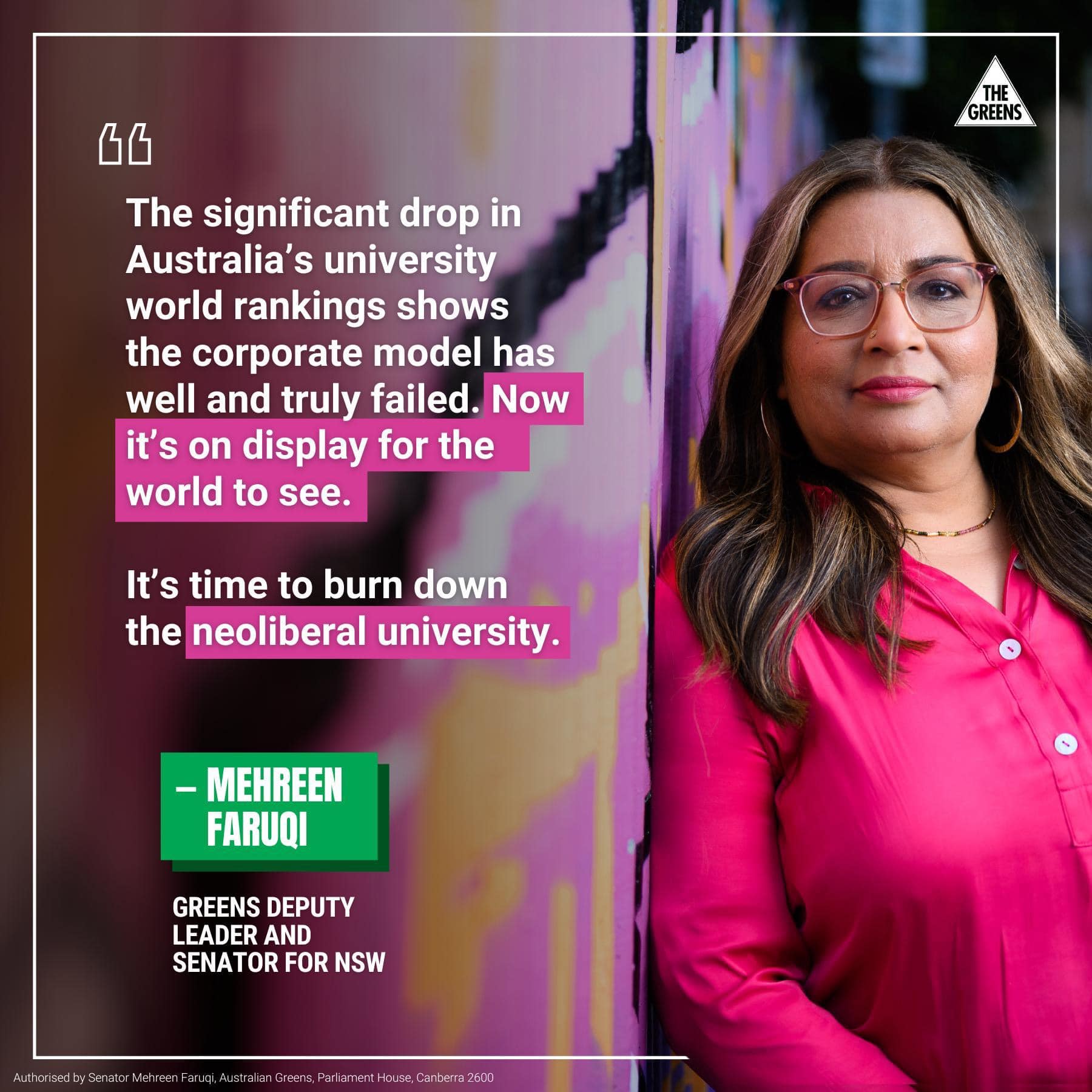
My policy approach is the same as Noel Pearson’s Voice strategy. There has been too much compromise with the neo-liberal economy in the last 25 years and more. I do not propose to “burn down the neoliberal university”, but simply stop compromising with the big business demands on what the university should deliver.
The historic choice is yours. Keep compromising with one side of politics or stop and rebuild value from the other side (“radical”), or face the overwhelming “radical” backlash.
Kind regards,
Neville.
*****
https://www.youtube.com/watch?v=5aDiWiDOU7g
*****
My point on what is truly “radical” and what is duped, is shown in the reversal of thinking on the No vote for the October 14 election, but pleased that persons can come to their senses on how the political game is made or lost.
I welcome a Yes vote whatever the motivation. It is the balanced solution.
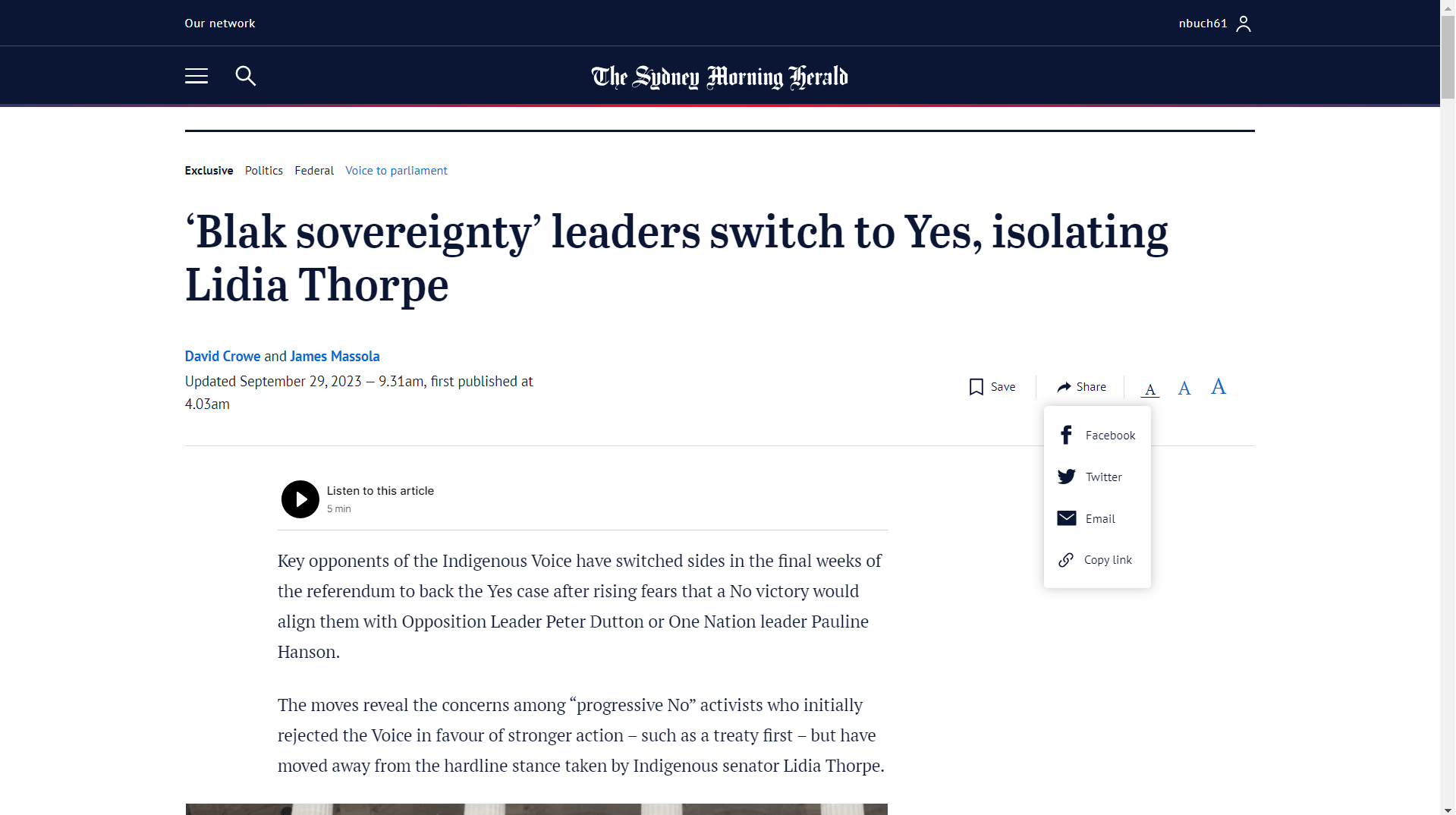
Featured Image: Thinking about Community Education and University. Photo 75687496 / Community Education © Rawpixelimages | Dreamstime.com

University Campus Education Knowledge School Concept

